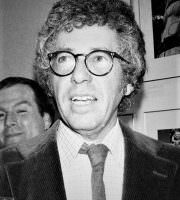by Kenneth Koch
It was distressing to think that Kawabata had committed suicide. It
wasn't distressing, however, to find out that he had defined happiness
as drinking a scotch and soda at the Tokyo Hilton Hotel. An acquain-
tance of mine thought this was a terrible thing to say, to such an extent
that for him it seemed almost to destroy the value of Kawabata's work.
Sitting on the terrace of the Hilton!
What's wrong with that?
A friend of mine, a woman, once explained happiness to me.
We were sitting in the Place de la République in Paris, an unlikely
spot for happiness. We were tired, had walked a lot, had sat down at
a large, generic big-square caté. Dear though it may be to its propri-
etors and its habitués, it seemed ordinary enough to us. So we sat there
and she ordered a Beaujolais and I, a beer. After two swallows of the
beer, I was overcome by a feeling of happiness. I told her and I told her
again about it later.
She had a theory about a "happiness base." Once, she said, you
had this base, at odd times, moments of true happiness could occur.
Without the base, however, they would not.
The base was made of good health, good work, good friendship,
good love. Of course, you can have all these and not be "happy."
You have to have the base, and then be lucky, she said. That's why
you were happy at the café.
Kawabata asked my acquaintance in turn: How would you dehne
happiness? He told me his answer: "I said How can anyone answer
a question like that?'"
(1993)
Last updated February 11, 2023




